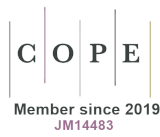A neighbour is a wolf to another neighbour. The motif of vicinity in Michel Houellebecq’s prose
DOI:
https://doi.org/10.18778/2299-7458.12.10Keywords:
Michel Houellebecq, Submission, Serotonin, Aneantir, vicinityAbstract
Otherness, alienation, the requirement to establish a neighbourly relationship with everything that is not mine – these are the main themes of Michel Houellebecq’s novel. The main character invented by the French writer is a nihilist who cannot relate to anything, not even to himself, and every contact with otherness arouses his fear, opposition and aggression. The unpleasant and unbearable proximity of others, however, allows him to define himself: in Submission he defines himself in opposition to the Muslim tradition, in Serotonin he despises the Dutch and his own Asian fiancée, in Aneantir he fights as a carnivore over the ingredients in the household fridge. His environs intensify his sense of loneliness, and observing other cultures, nations, traditions and habits leads to one bitter reflection – I don’t belong anywhere, therefore I am completely alone. What kind of neighbour can a total misanthrope be? And why did Houellebecq, in an age of openness, tolerance, praise of beauty and self-perfection, choose this particular kind of self-creation?
Downloads
References
Barthes R., Mitologie, przeł. A. Dziadek, Warszawa 2020.
Google Scholar
Campbell F., La France, c’est Michel Houellebecq?, „Revue critique de fixxion française contemporaine” 2019, nr 9. https://doi.org/10.4000/fixxion.933
Google Scholar
Couleau C., Michel Houellebecq et Balzac, au milieu du monde, [w:] Balzac contemporain, Paris 2019, s. 65–90.
Google Scholar
Demonpion D., Houellebecq, przeł. M. Kowalska, A. Dwulit, Warszawa 2022.
Google Scholar
Hładki P., Pluralité des cultures dans l’oeuvre de Michel Houellebecq et de Jerzy Pilch, „Acta Universitatis Lodziensis. Folia Litteraria Romanica” 2014, nr 9, s. 155–162.
Google Scholar
Houellebecq M., Serotonina, przeł. B. Geppert, Warszawa 2019.
Google Scholar
Houellebecq M., Uległość, przeł. B. Geppert, Warszawa 2015.
Google Scholar
Houellebecq M., Unicestwianie, przeł. B. Geppert, Warszawa 2022.
Google Scholar
Houellebecq M., Lévy B.-H., Wrogowie publiczni, przeł. M. J. Mosakowski, Warszawa 2012.
Google Scholar
Klik M., A feast for our time. On eating and drinking in Michel Houellebecq’s novels, „Kwartalnik Neofilologiczny” 2002, nr 4, s. 516–525.
Google Scholar
Klik M., Ciało na przełomie wieków, czyli o starzeniu się i schyłku cywilizacji zachodniej w powieściach Michela Houellebecqa, „Tekstualia” 2020, nr 4, s. 94–95.
Google Scholar
„Nowy Napis. Liryka, epika, dramat” 2019, nr 4.
Google Scholar
Novak-Lechevalier A., Houellebecq, l’art de la consolation, Paris 2018.
Google Scholar
Onfray M., Le Miroir du nihilisme. Houellebecq éducateur, Paris 2017.
Google Scholar
Padovani L., Soumission, le roman de la conversion Houellebecq, le réel et la fiction, „Revue d’Études Françaises. French Studies Journal” 2022, nr 14, s. 20–39. https://doi.org/10.21747/0873-366X/int14a2
Google Scholar
Piechota D., Hipsterzy w lustrze dekadentów, „Prace Literackie” 2016, t. LVI, s. 103–112. https://doi.org/10.19195/0079-4767.56.7
Google Scholar
„Sąsiad”, „sąsiedztwo”, [w:] Słownik języka polskiego, red. W. Doroszewski, t. 8, Warszawa 1966, s. 82–84.
Google Scholar
Zieniewicz A., Sceny biografii. Ja pisarskie w pamięci autobiograficznej (interpretacje), Warszawa 2022.
Google Scholar
http://www.fabula.org/actualites/84399/voisinage-et-alterite-en-litterature-et-autres-disciplines.html [dostęp: 1.04.2023].
Google Scholar
Downloads
Published
Versions
- 2024-02-09 (2)
- 2023-12-21 (1)
How to Cite
Issue
Section
License

This work is licensed under a Creative Commons Attribution-NonCommercial-NoDerivatives 4.0 International License.










